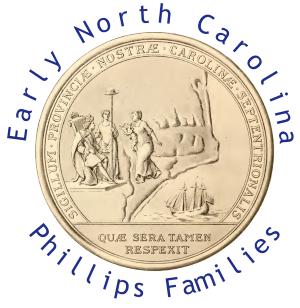Fred Loring Seely
From ENC Phillips Group Wiki
Fred Loring Seely (December 22, 1871 – March 14, 1942) was a newspaperman, chemist, inventor and philanthropist.
Born to Uriah and Nancy Hopping Seely, in Monmouth, New Jersey, Fred Seely first worked for the Parke-Davis pharmaceutical company and later became an executive for his father-in-law Edwin Wiley Grove's "Paris Medicine Company," a patent medicine business based in Tennessee. In 1906, with Mr. Grove's financial backing, Seely founded the Atlanta Georgian daily newspaper. He also took on many socially active causes, one of which was the exposure of chain-gang labor practices in Georgia. State prisoners were being rented out for fifty cents a week, and many of these inmates received poor treatment at the hands of their temporary employers. Seely used his newspaper as a pulpit to broadcast the abuses of the chain-gang labor system. He was instrumental in helping to terminate this form of modern slave labor in Georgia. Many of his advertisers, however, had profited by using the prison laborers, and these well-to-do clients of The Atlanta Georgian were furious with Seely for his activism in this cause. They subsequently dropped their support for his newspaper, and this precipitated the sale of the paper to Randolph Hearst in 1912 [1]. After this, Seely went to North Carolina where in 1913 he built the Grove Park Inn with his father-in-law Edwin Wiley Grove. In 1917, he purchased Biltmore Estate Industries from Edith Vanderbilt and changed the name to Biltmore Industries. This small factory was primarily a home-spun wool weaving and woodworking business. Seely employed many deaf persons to work in his factory; two of his own siblings, in fact, were deaf. He also acted as the architect and builder of his home "Overlook" (sometimes called "Seely's Castle")on Sunset Mountain overlooking Asheville. After Seely's death in 1942 in Asheville, North Carolina, his widow Evelyn Grove Seely sold the home to what would become Asheville-Biltmore College, the forerunner of what is now the University of North Carolina at Asheville.
The relationship between Seely and his father-in-law Edwin W. Grove, who would not sell him the Grove Park Inn, apparently was troubled from the start, and never improved. Writes Helen Wykle, who studied their relationship and wrote on the relationship between the two men:
"Seely managed the Grove Park Inn for his father-in-law for nearly 27 years but was unable to convince E.W. Grove to sell him the hotel. The resulting animosity between the two put a strain on their relationship and on Fred Seely's marriage to Grove's daughter Evelyn. Seely had come to Asheville to work with Grove as a chemist. Grove's Chill Tonic and other "medicinal" remedies made both Grove and Seely large fortunes, but it also made them bitter rivals. Grove's jealousy and his competitive nature were never overcome and Seely, talented and charming as he was, never was successful in charming or winning the affection of his father-in-law. The correspondence and the ensuing law-suit in which Seely sued Grove for breach of promise were bitter and futile engagements for Seely."[2]
References
- Garrett, Franklin, Atlanta and Its Environs, 1954, University of Georgia Press.
- Through a cooperative agreement with Grovewood Gallery at toto.lib.unca.edu
- Biltmore Industries Shops at www.heritagewnc.org
- Overlook, home of Fred Loring Seely
Notes
- ↑ Garrett, Vol.II, p.498
- ↑ Fred Seely's Women, Helen Wykle, Special Collections, D.H. Ramsey Library
